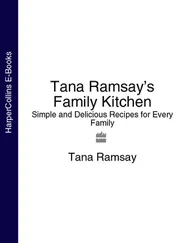Gordon Ramsay’s Great British Pub Food
Gordon Ramsay Mark Sargeant
Food Mark SargeantText Emily Quah
Cook’s notes Cook’s notes Introduction BAR FOOD SAVOURIES WITH TOAST SOUPS AND BROTHS STARTERS CATCH OF THE DAY PIES AND SAVOVRY TARTS COMFORT FOOD GRILLS AND SAUTES WEEKEND ROASTS PUDDINGS BASICS Index Copyright About the Publisher
Spoon measures are level, unless otherwise specified:
1 tsp is equivalent to 5ml; 1 tbsp is equivalent to 15ml.
Use good-quality sea salt, freshly ground pepper and fresh herbs for the best flavour.
Use large eggs unless otherwise suggested, ideally organic or free-range. If you are pregnant or in a vulnerable health group, avoid dishes using raw egg whites or lightly cooked eggs.
Oven timings are for fan-assisted ovens. If using a conventional oven, increase the temperature by 15°C (1 Gas Mark). Individual ovens may vary in actual temperature by 10° from the setting, so it is important to know your oven. Use an oven thermometer to check its accuracy.
Timings are provided as guidelines, with a description of colour or texture where appropriate, but readers should rely on their own judgement as to when a dish is properly cooked.
Cover Page
Title Page Gordon Ramsay’s Great British Pub Food Gordon Ramsay Mark Sargeant Food Mark Sargeant Text Emily Quah
Cook’s notes Cook’s notes Cook’s notes Introduction BAR FOOD SAVOURIES WITH TOAST SOUPS AND BROTHS STARTERS CATCH OF THE DAY PIES AND SAVOVRY TARTS COMFORT FOOD GRILLS AND SAUTES WEEKEND ROASTS PUDDINGS BASICS Index Copyright About the Publisher Spoon measures are level, unless otherwise specified: 1 tsp is equivalent to 5ml; 1 tbsp is equivalent to 15ml. Use good-quality sea salt, freshly ground pepper and fresh herbs for the best flavour. Use large eggs unless otherwise suggested, ideally organic or free-range. If you are pregnant or in a vulnerable health group, avoid dishes using raw egg whites or lightly cooked eggs. Oven timings are for fan-assisted ovens. If using a conventional oven, increase the temperature by 15°C (1 Gas Mark). Individual ovens may vary in actual temperature by 10° from the setting, so it is important to know your oven. Use an oven thermometer to check its accuracy. Timings are provided as guidelines, with a description of colour or texture where appropriate, but readers should rely on their own judgement as to when a dish is properly cooked.
Introduction
BAR FOOD
SAVOURIES WITH TOAST
SOUPS AND BROTHS
STARTERS
CATCH OF THE DAY
PIES AND SAVOVRY TARTS
COMFORT FOOD
GRILLS AND SAUTES
WEEKEND ROASTS
PUDDINGS
BASICS
Index
Copyright
About the Publisher
The great British Pub has played an important and unique role in British society right from Roman times, through the Middle Ages and up to the present day. It is a role that has changed, adapted and evolved as society has dictated, but the pub has always maintained its focus as the place to go – to relax, to celebrate, to mourn, to talk, to drink and, increasingly, to eat.
As a social chronicle, the pub has documented every cultural trend, often hand in hand with a legislative force that appears intent on protecting society. From controlling the hours during which pubs were allowed to open, to the most recent change, the banning of smoking, laws have tested the ingenuity of publicans to keep their doors open for business.
It might seem surprising that eating wasn’t traditionally part of pub life. The earliest taverns may have supplied bread with the ale, but the concept of eating out had not been born. You ate at home and you went to the pub for your social needs. This was where you drank, smoked and sought entertainment through conversation. It catered for the social divide with public rooms and screened-off snugs where employers, the employed, the vicar, the widower and the retired could go, albeit often with a pricing hierarchy. A pint in the discrete snug with its frosted glass and privacy simply cost more.
The advent of television beckoned the end of the pub as the social epicentre. The concept of buying alcohol and taking it home was not lost on the evolving supermarket owners, who responded by stacking their shelves accordingly. Home now offered comfort with entertainment and without the restrictions of closing time or the risk of a drink-drive prosecution. The publican had to think hard in order to survive. Trade fell off. Real ale wasn’t consumed at the same rate and suddenly the contents of barrels reached their ‘best by’ date before they had run dry. The brewers countered with a longer life offer, lager, which lived under pressure but it did not take away the problem of a diminished flow of alcohol.
Often the management, tenancy or ownership of a pub lay with a married couple. It was an ideal partnership in this social centre where the husband could attend to the barrel changing and control of his customers, while the wife busied herself with glass-washing and looking after the premises. If the business of serving beer was no longer what kept the bar team running around with the till ringing in the background, there had to be an opportunity for another offering.
There was now time and space for food. The concept of eating out was still in its infancy and the one overriding restriction was cost. The publican already had the premises, the seating and staff. All he had to do was arrange for a kitchen and a simple, good value bar menu to be made available. It was not only an opportunity to increase the flow of cash across the bar, but would, in time, bring back some of that lost wet trade. Moreover, a pub that began to make a name for itself for the quality of its food flourished. A restaurant was expensive and often made its new public feel uncomfortable. The pub had found a niche and suddenly there was the possibility for almost fifty thousand outlets to refocus their business.
The ban on smoking did pubs with grub no damage. On the contrary, it took away the one spoiler to eating good food in a convivial atmosphere. And there can be little doubt that any trade lost due to smokers who remained in their homes was regained as others now ventured forth to sample the food offerings of their local.
When we opened the Gordon Ramsay pubs in London, we wanted to give the public fantastic but casual food, served up alongside a few good pints and at a price that wouldn’t break the bank. Not posh nosh, but classic British dishes that have stood the test of time. Our mantra has always been ‘keep it simple and make it tasty’ and that’s exactly what we wanted to deliver in the pubs. We also wanted to bring back a few old-fashioned favourites, like cottage pie with Guinness, Lancashire hotpot and irresistibly sticky treacle tart.
This book brings to you dishes that have become pub classics. It offers simple, reasonably priced recipes that you can cook at home without fuss or complication. This is the food that has brought the British pub on to the culinary map.
Конец ознакомительного фрагмента.
Текст предоставлен ООО «ЛитРес».
Прочитайте эту книгу целиком, купив полную легальную версию на ЛитРес.
Безопасно оплатить книгу можно банковской картой Visa, MasterCard, Maestro, со счета мобильного телефона, с платежного терминала, в салоне МТС или Связной, через PayPal, WebMoney, Яндекс.Деньги, QIWI Кошелек, бонусными картами или другим удобным Вам способом.












